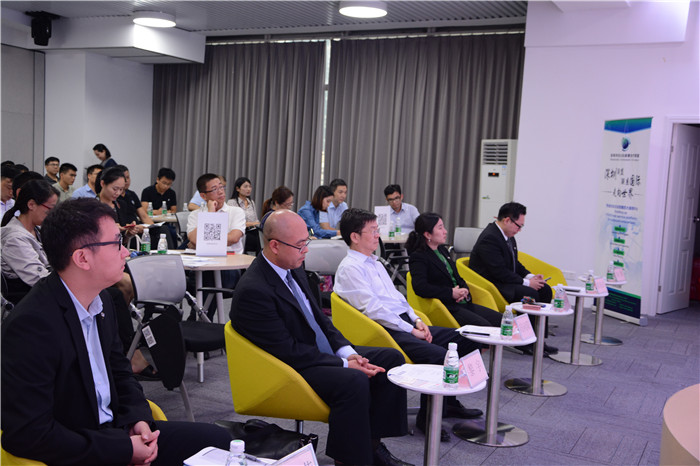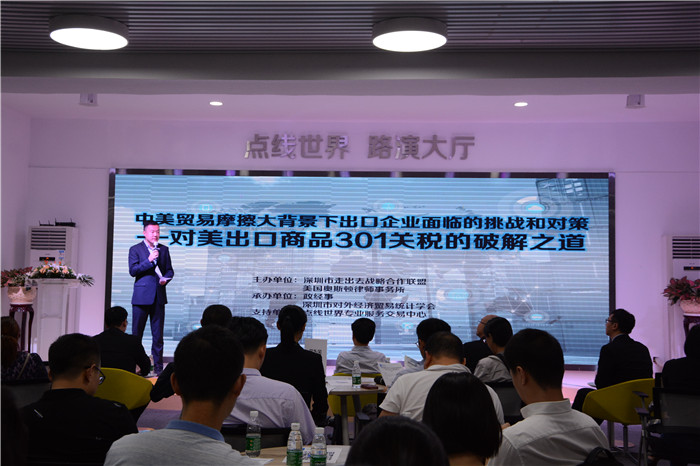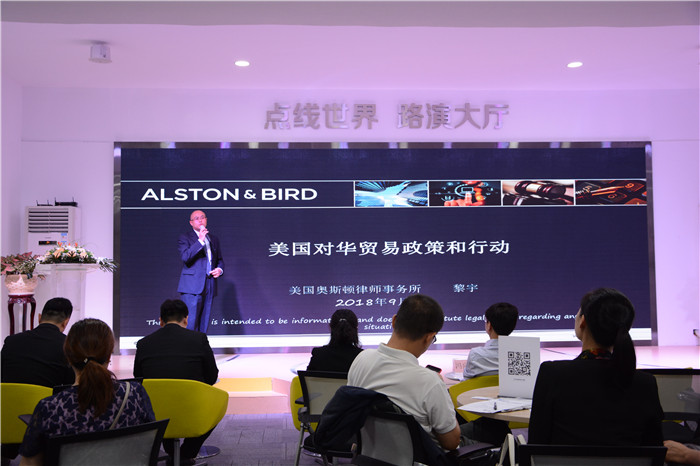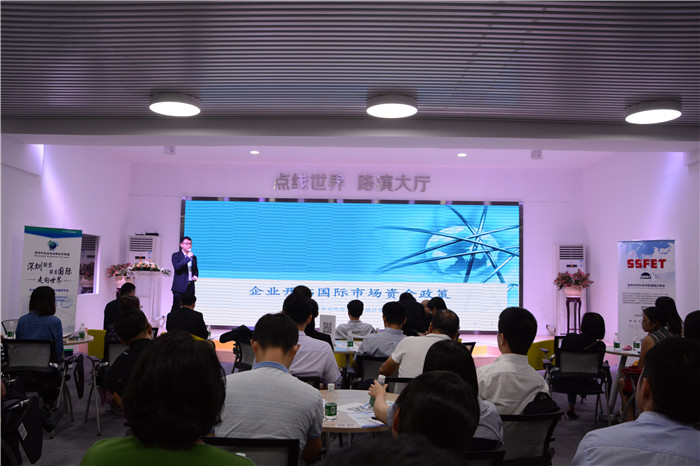How Could Chinese Exporters Develop in the Context of Sino-US Trade Friction

On September 10, an Event under the theme of “Challenges and Countermeasures of Chinese Exporters in the Context of Sino-US Trade Friction- the Way to Cope with Section 301 Tariffs on China” was held at the Point-line Space Professional Service Exchange Center in Futian District, Shenzhen, which was hosted by Shenzhen Outbound Alliance (SOA) and Alston & Bird Law Firm and organized by Statistical Society for Foreign Economic Relations and Trade of Shenzhen (SSFET) and Roadlink GLB. SOA and SSFET, together with the professional institutions to provide solutions for Section 301 Tariff Exemption. Experts and scholars at home and abroad offered suggestions for Section 301 Tariff Exemption and attended the Q&A session. The Event was hosted by Zhou Gang, Feng Xiangyang, Director of Shenzhen Futian District Enterprise Development Service Center; Sun Tianlu, Executive Chairman of SOA; Li Yu, a lawyer from Alston & Bird Law Firm; Zhai Haibin, Deputy Secretary-General of SSFET, and Liang Qiurong, Senior Manager of SSFET Policy Research Department, as well as representatives from nearly 80 companies attended the Event.

Zhou Gang, Deputy Secretary-General of SOA

Li Yu, a lawyer from Alston & Bird Law Firm
Li Yu explained the challenges and countermeasures faced by Chinese exporters in the context of Sino-US trade friction. Section 301 is used to correct specific conducts of US trade partners, and if the conduct targeted by the investigation is not corrected, retaliation actions may be taken by the United States. On August 18, 2017, US President Trump instructed the Office of United States Trade Representative (USTR) to launch Section 301 Investigations into the Chinese laws, policies and conducts involving technology transfer, intellectual property right, and network activities. Li Yu analyzed the retaliation list proposed by the United States in details and elaborated on the WTO case of the US Section 301 Investigations. Based on policy considerations, he accurately analyzed the US Section 301 Tariffs Exemption procedure. He helped companies analyze legal procedures that lead to trade remedies after successful export to the United States, as well as anti-dumping procedures and countervailing procedures. In anti-dumping investigations, all Chinese enterprises are considered to belong to the same entity (China); the unified entity of China is usually considered to have quite a high level of dumping margin; in order to obtain a separate tariff rate, the enterprise must prove that it is not legally and virtually controlled by the Chinese government; in the past few years, the United States has decided that any state-owned entity cannot obtain a separate tariff rate. In terms of expanding opening-up, China has announced major measures and initiatives. First, in service industry, especially in financial industry, efforts should be made to ensure the implementation of the major measures announced at the end of last year to loosen restrictions on foreign-funded shareholding ratio in banking, security and insurance industries; at the same time, efforts should also be made in opening up so as to speed up the opening up of insurance industry, loosen restrictions on the establishment of foreign-funded financial institutions, enlarge their business scope, and expand the fields of cooperation between Chinese and foreign financial markets. The manufacturing industry has been basically opened up, with remaining restrictions mainly on a few industries such as automobile, ship and aircraft. At present, these industries have obtained the foundation for opening up. The next move is to accelerate the process of loosenning restrictions on foreign-funded shareholding ratio, especially the restrictions on foreign investment in automobile industry.

Liang Qiurong, Senior Manager of SSFET Policy Research Department
Shenzhen provides financial assistance for the construction of international marketing networks and provides support for those enterprises and commerce associations registered in Shenzhen and enterprises or institutions established overseas that mainly specialize in various forms of business activities such as international marketing, brand marketing, product display and merchandise distribution, and that are committed to expanding overseas markets and promoting foreign trade and economic development. There are four types of support for funding: the establishment of overseas sales channels; the establishment of corporate overseas brand marketing centers; the establishment of Shenzhen products overseas marketing centers; and the establishment of overseas service agencies. Shenzhen launched the overseas business and performance awards for foreign contracted projects for the first time, facilitating Shenzhen to enhance internationalized management capability.